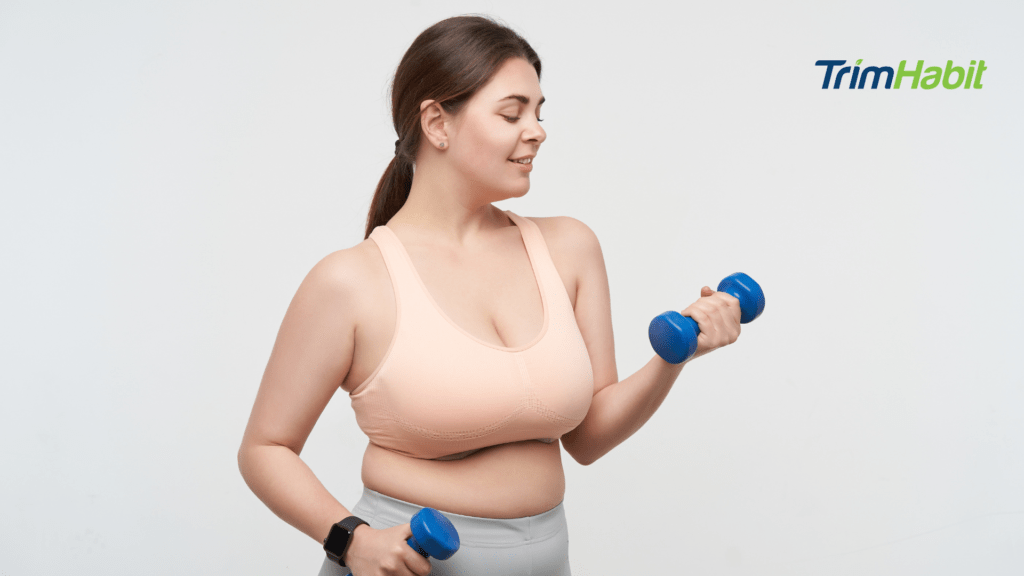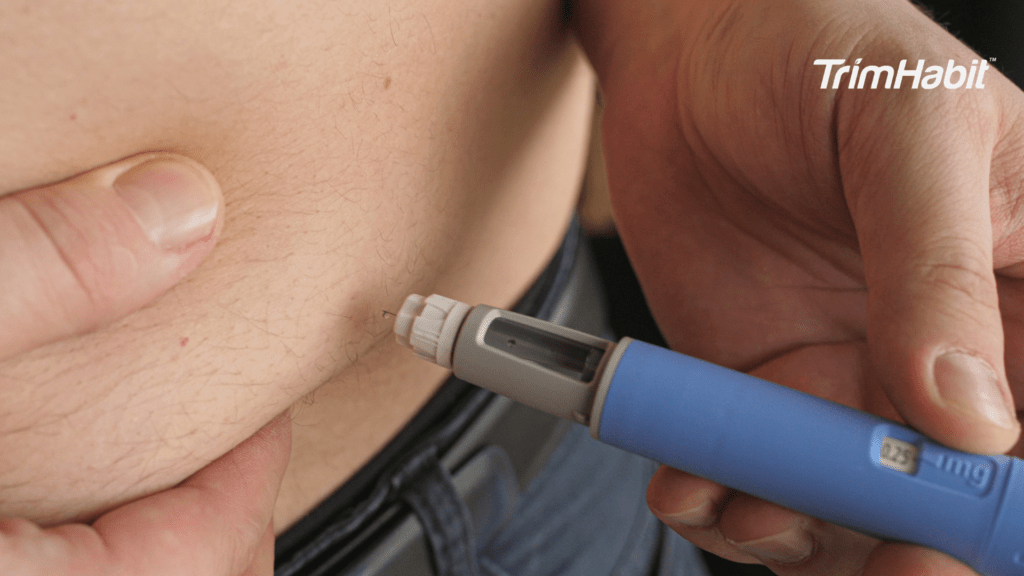When you begin taking semaglutide, your metabolism, appetite, and digestion all start to change in ways that can help you make lasting progress. Yet one area that often gets overlooked is how your body performs during exercise. Many people focus on eating less, but learning how to eat right before activity can change your results entirely.
The right pre-workout fuel for semaglutide weight loss plans gives you the energy to move, lift, and sweat effectively, which in turn helps you reach and maintain a healthy weight.
Using semaglutide for weight loss affects how your stomach empties and how your body absorbs nutrients. Because digestion slows, eating too close to a workout can make you feel heavy or sluggish.
On the other hand, skipping food altogether can drain your energy and lead to reduced endurance. The key lies in balance. When you give your body what it needs, you improve your calorie burn, protect lean muscle mass, and create the right conditions for successful weight loss that feels sustainable.
Why Pre-Workout Fuel Matters On Semaglutide
The concept of pre-workout fuel for semaglutide weight loss plans goes far beyond grabbing a quick snack. It involves understanding how food interacts with medication, energy, and physical effort. Semaglutide can make it easier to eat less, but that reduced appetite sometimes means you forget to fuel up before training.
When you plan your exercise routine carefully, you give yourself a foundation for success. Combining strength training with cardio provides balance and keeps your metabolism active. However, your muscles still need the right nutrients to perform. Without pre-workout food, you may experience low energy, lightheadedness, or slow recovery after training.
Since semaglutide can influence blood sugar1, choosing foods that help stabilize blood sugar levels is essential. Pre-workout meals or snacks should include protein-rich foods, healthy fats, and complex carbohydrates from whole grains or high-fiber foods. These provide a steady flow of energy and help prevent the mid-workout fatigue that can make exercise feel harder than it needs to.
Building The Foundation For A Smart Exercise Plan
Your exercise plan should match both your fitness level and how your body responds to semaglutide. It should include a mix of movement styles, from high-intensity interval training to resistance training and flexibility exercises. Each type plays a role in shaping your strength, endurance, and metabolism.
Developing an exercise plan tailored to your situation means thinking about your medical history, health conditions, and pre-existing conditions. For example, if you have high blood pressure or other medical conditions, you may need to begin with gentle workouts before building intensity. A healthcare provider can provide personalized guidance to make sure your training aligns with your health goals and supports your progress safely.
This approach builds more than muscle. It fosters a balanced lifestyle that enhances your overall fitness and creates habits you can sustain for years. Every session becomes an opportunity to grow stronger and improve your cardiovascular health, not just a means to burn calories.
Timing Your Nutrition For Maximum Performance
Food timing influences performance just as much as food choice. With semaglutide, you need a little more time to digest before activity. For larger meals, aim for about 90 minutes before exercise. For smaller snacks, 30 to 45 minutes is usually enough.
If your workout intensity is high, as in high-intensity interval training, you will rely heavily on carbohydrates. These workouts demand quick energy that comes from stored glycogen. For gentler sessions such as flexibility exercises, you can focus more on protein and fat, since your energy demands are steadier.
Pay attention to how your body responds. Everyone experiences semaglutide treatment differently, and what fuels one person well might not work for another. Keeping track of what you eat, how long you wait before working out, and how you feel afterward helps you find the rhythm that supports your best performance.
What To Eat Before You Work Out
A good pre-workout meal is simple and purposeful. The goal is to boost energy levels, prevent hunger, and support performance without upsetting your stomach. Because semaglutide slows digestion, you will often perform best when you eat about one to two hours before exercise.
Here are the key elements of a balanced pre-workout meal:
- Lean proteins to support muscle repair and strength. Chicken, eggs, tofu, or Greek yogurt are great choices.
- Healthy fats such as avocado, nuts, or seeds for sustained energy.
- Whole grains or brown rice for complex carbohydrates that release energy slowly.
- High fiber foods like oatmeal, berries, or quinoa for fullness and blood sugar stability.
This combination promotes proper nutrition and helps enhance semaglutide’s effects. You give your muscles the raw materials they need to recover and grow, and you set yourself up for improved muscle growth and fat loss.
Sample Pre-Workout Fuel For Semaglutide Weight Loss Plans
Light Meals (Ideal 60–90 Minutes Before Exercise)
These options provide a moderate amount of energy while remaining easy to digest.
- Greek yogurt with berries and chia seeds – offers protein, antioxidants, and fiber to support stable energy.
- Grilled chicken with a small portion of brown rice – lean protein and complex carbohydrates to power your session.
- Egg whites with avocado and whole grain toast – combines healthy fats and protein for endurance.
- Oatmeal with almond butter and banana slices – rich in complex carbohydrates and potassium for sustained strength.
- Cottage cheese with pineapple and a few almonds – provides protein for muscle repair with natural sugars for energy.
Quick Snacks (Ideal 30–45 Minutes Before Exercise)
These are best if you prefer something light or have a limited appetite before workouts.
- Apple slices with peanut butter – quick fuel with fiber and protein to prevent energy crashes.
- Protein shake blended with half a banana and unsweetened almond milk – easy to digest and quick to prepare.
- Rice cake topped with hummus and cucumber – gentle on digestion and adds hydration.
- A handful of mixed nuts with a small piece of fruit – steady energy from healthy fats and carbohydrates.
- Low-fat string cheese and a few whole grain crackers – balanced and satisfying without heaviness.
Liquid Options (For Early Morning or Low Appetite Days)
These choices digest quickly and supply essential nutrients without heaviness.
- Smoothie with spinach, protein powder, frozen berries, and flaxseed – nutrient-dense and easy to sip.
- Half a protein bar with a small iced coffee or green tea – provides caffeine and a protein boost.
- Chocolate protein shake made with oat milk and a teaspoon of nut butter – a comforting, energizing option.
The Importance Of Hydration
Hydration may not sound like a pre-workout focus, but it plays an enormous role in performance. Because semaglutide can reduce appetite and thirst, you might start your workouts less hydrated than you think. Dehydration increases fatigue and reduces endurance, which can make even easy exercises feel demanding.
Drink water throughout the day and add electrolytes if you are sweating heavily or training outdoors. Consistent hydration supports better recovery and helps regulate temperature during regular workouts2. Staying hydrated also supports your metabolic health, which is vital when your goal is sustainable change.
Protecting Muscle And Metabolism
Semaglutide works well for weight management, but you must still protect your muscle tissue. Losing weight too quickly can result in muscle loss, which reduces strength and slows your metabolism3. To avoid this, include resistance training and strength training several times each week.
These forms of exercise stimulate muscle repair and maintain muscle mass even as you lose weight. Pairing these workouts with protein-rich foods before and after sessions helps your body rebuild effectively. The more lean muscle mass you preserve, the better your body becomes at burning calories even at rest.
Managing Energy And Appetite
One challenge of weight loss semaglutide is learning to fuel your body when your appetite is reduced. Even if you do not feel hungry, your muscles still need energy for movement and recovery. Skipping pre-workout nutrition can lead to sluggishness or early exhaustion.
Choosing the best foods for pre-workout meals involves balance. You want easily digestible options that still offer complex carbohydrates and some protein. For example, oatmeal with nut butter or Greek yogurt with fruit provides energy and supports insulin sensitivity. This helps your body use glucose more efficiently during training.
Making thoughtful food choices before each session can significantly enhance the benefits of semaglutide therapy. Fueling well not only strengthens performance but also improves recovery, consistency, and motivation.
Preventing Fatigue And Supporting Recovery
Your pre-workout food affects how well you perform, but it also influences how quickly you recover. Proper fueling reduces post-exercise fatigue and helps prevent overtraining, both of which can stall progress.
When you consume carbohydrates and protein before activity, your muscles receive glycogen for performance and amino acids for repair. This balance improves your stamina and helps you handle more calories during longer sessions of physical activity.
Even when your fitness goals focus on fat loss, remember that recovery matters just as much as effort. You cannot progress if your body is constantly depleted. Balanced nutrition before and after exercise is a way to honor your body while keeping your results sustainable.
Staying Consistent For Sustainable Results
Whether you are just starting out or already deep in your fitness journey, consistency is what makes the difference. Small habits that you repeat every day build long-term strength and confidence. Preparing pre-workout meals, drinking water, and getting enough sleep all support your healthy lifestyle and make weight loss more achievable.
When you exercise regularly, your endurance improves, and your cardiovascular health becomes stronger. Regular training also elevates your mood and enhances your well-being, creating a sense of accomplishment that extends far beyond the gym.
Your overall health benefits most when exercise is paired with a well-balanced diet, rest, and self-care. These choices work together to reinforce balance and vitality.
Listening To Your Body
Your body’s response to food, exercise, and medication will change over time. Some workouts will feel easier, others more challenging. Adjusting your routine as needed keeps progress steady.
If you notice your energy dropping, your workout plan may need more carbohydrates. If digestion feels heavy, you may need to eat earlier. Keeping notes about your meals and training helps identify what truly works for you.
You can then seek personalized guidance from a trainer, nutritionist, or healthcare provider familiar with your medical history and health conditions. This teamwork helps fine-tune your regimen so that every effort contributes to your health goals safely and effectively.
Long-Term Transformation And Motivation
The power of semaglutide lies not just in its appetite-suppressing effects but also in how it helps you reshape your relationship with food and movement. When you align nutrition with activity, you allow your body to increase calorie burn, maintain lean muscle mass, and build stamina with every session.
Your workouts begin to feel less like tasks and more like essential steps toward a healthier life. When paired with a thoughtful semaglutide treatment plan, this balance leads to steady progress that feels natural instead of forced.
You start to notice not just the physical results, but also improved confidence, better mood, and a deeper appreciation for how your body adapts to care and consistency.
Living With Intention And Balance
Every small decision adds up in your weight loss journey. Choosing the right pre-workout foods may not seem like a major step, yet it can completely transform your performance and recovery. The energy you gain from fueling correctly translates into stronger workouts, faster progress, and better focus throughout the day.
Nutrition, hydration, and rest are the foundation that keeps everything else stable. With patience and attention to your body’s needs, your weight management efforts become more intuitive and sustainable. The focus shifts from simply wanting to lose weight to embracing a complete picture of health that values strength and vitality.
By combining thoughtful eating with regular exercise, you build habits that promote well-being and long-term success. Each balanced meal and each training session bring you closer to your ideal of overall health and a confident, empowered version of yourself.
Final Thoughts
Finding the best way to fuel your workouts while using semaglutide requires patience and experimentation. Once you discover what foods and timing work best, your performance improves naturally. You begin to see how boosting metabolism, endurance, and recovery come together to create the foundation of a balanced, energetic life.
Whether your aim is fat reduction, strength building, or better stamina, paying attention to pre-workout nutrition will help you make the most of every session. As you become more consistent and confident, you will continue to refine your plan to support your fitness goals and overall long-term fitness.
Pre-workout fueling is more than just a step in your workout plan. It represents your commitment to strength, energy, and a life that feels good from the inside out.









